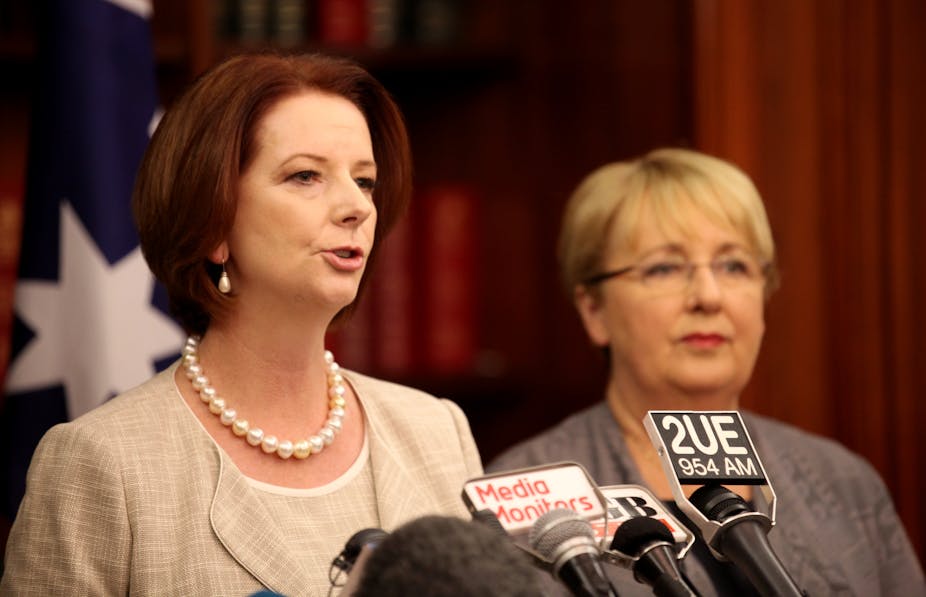The terms of reference of the Royal Commission into Institutional Responses to Child Sexual Abuse have been prudently drawn, providing scope for both inquisitorial depth and transformative policy recommendations.
The commission must analyse both the history of institutional child sexual abuse, and complex issues of law and public policy arising in a complicated context of psychology, social science and realpolitik. It presents a unique opportunity to change institutional cultures, and to reform law, policy and practice.
The commission is important because it gives those who have experienced child sexual abuse a chance to be heard and believed. It is also important because survivors of abuse want to be assured that all reasonable steps are taken to prevent it happening again. state and territory inquiries have occurred or are ongoing, but this commission’s fuller investigative capacity and ability to make broad reform recommendations makes it particularly powerful. Yet, the commission faces many challenges.
The power of the church
The first problem is the realpolitik. Churches have enormous political power and have influenced both practical and legislative responses to child sexual abuse, not always for the better. The Catholic Church has blocked survivors’ lawsuits by relying on its lack of juridical status as a legal entity, as determined by a 2007 New South Wales Court of Appeal judgment. Other churches have also blocked these lawsuits.
State governments have also used legal technicalities to block survivors of abuse from access to courts.
Substantial conflicts of interest plainly exist. How will the commission deal with these?
Running down the clock
This raises the second issue. Laws in every state and territory create a time limit within which a claim for compensation should be brought.
The time limit does not operate automatically. The defendant has to choose to use it to block the plaintiff. Yet, in many child sexual abuse cases, this is what public and private institutions have done.
Where there is clear evidence of wrongdoing, it is unjust for a powerful defendant with immense resources to use these technicalities to defeat a survivor of child sexual abuse. This multiplies the abuse and adds to the damage suffered by survivors and their families.
Plaintiffs may seek an extension of time, but applications are costly, distressing, time-consuming, and often fail. Especially for governments, which should not rely on their power to defeat weaker parties through unfair use of technicalities, unjust blocking of claims must cease.
For good reasons, many survivors cannot bring a claim within the short period of time allowed. These laws have been cogently argued to be conceptually ill-suited to child sexual abuse cases. Most Canadian jurisdictions have abolished time limits for these cases. How will the commission approach these problems?
Reporting abuse
The third issue relates to another central component in the detection and response system. Mandatory reporting laws exist in each state and territory, requiring selected groups of people to report known or suspected cases of child sexual abuse.
The laws recognise that sexual abuse occurs in secret, is often extremely damaging, often continues for long periods, and is inflicted on vulnerable children who cannot protect themselves. There are differences between state laws, with some requiring a much broader range of people to report.
Research has shown the laws produce positive outcomes, but there are differences in how well prepared mandated reporters are to detect and report cases, and problems in compliance. Child protection systems are inadequately resourced, and insufficient services are provided to abused children.
What can the commission do to create legal and practical equality, heighten effective reporting, and optimise service provision to alleviate the impact of abuse?
Compensation
Fourth, the commission must make recommendations on the provision of redress by institutions. This will raise thorny questions, as several states have implemented redress schemes already, some churches have provided compensation, and redress schemes are complex mechanisms requiring sensitive mechanisms and sufficient funds.
However, meaningful redress is an essential component of appropriate institutional responses, and many jurisdictions have implemented them on a statutory basis.
While most people seeking redress are not motivated by financial gain - the primary desire is to be heard, believed, and to have responsible authorities take action to reduce abuse - those who experienced abuse will nearly always have suffered economically, in many cases in a profound and long-lasting way. Redress payments demonstrate genuine recognition of wrongdoing and loss, and facilitate medical treatment including counselling which many victims are unable to afford.
A new environment
The commission does not inquire directly into other forms of abuse, and only focuses on sexual abuse within institutions. These limits will not satisfy some people, and with some cause.
Yet the policy recommendations resulting from the inquiry have the capacity to produce groundbreaking progress in Australian social and legal policy in how we approach and respond to child sexual abuse, both within and beyond institutions.

